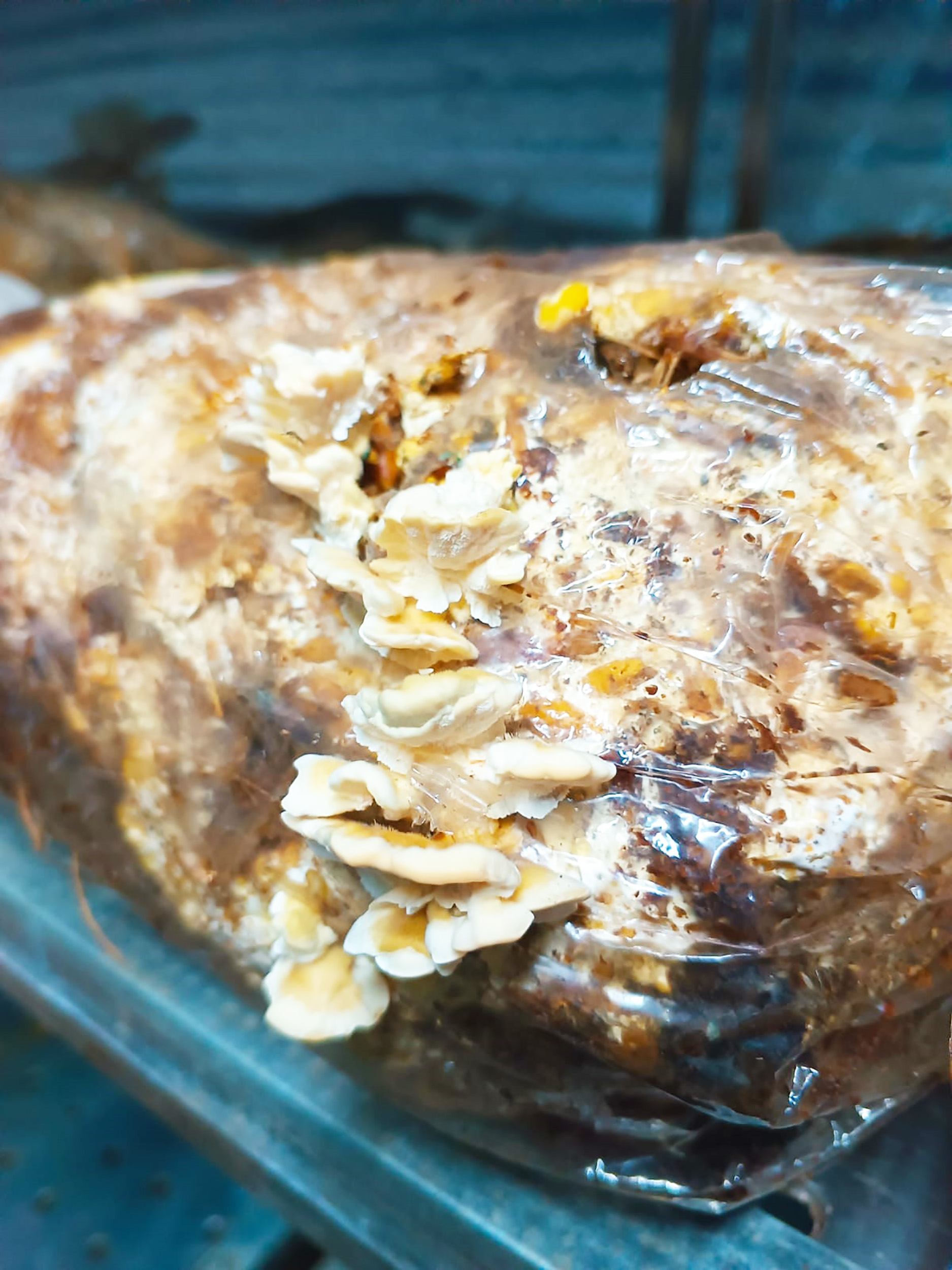
Mushrooms, Transforming Lives through their Medicinal Value
Based on the demand for consumption mushrooms in hotels, and the challenge of perishability being high to open a branch in Mombasa
With over 2,000 types of mushrooms, the conditions for their growth and the benefits they offer are as numerous as their diversity
Mushroom, often overlooked, has been recognized for centuries in traditional settings as a delicacy cherished for its nutritional and medicinal value. Traditionally known for its growth in the wild, particularly during rainy seasons, mushroom cultivation is now gaining traction. As Mr. Roussoss Demisee Odhiambo, the founder of Mushroom Kenya, points out, the sector is witnessing a renewed interest.
Before venturing into the mushroom industry, Mr. Roussoss was an IT expert with a degree from Mount Kenya University. After graduating they began a tech startup of IT that offered digital services for companies. His interest in mushroom farming was piqued during a work project with the Centre for Agricultural and Biosciences International (CABI) an agricultural research company around Muthaiga. Through this project, they were analyzing the company’s data collected from field, then feeding it digitally and finally generating reports.
It was at this time that when a client came with inquiries about mushroom farming, Mr. Odhiambo was intrigued about mushroom farming hence he went around engaging with farmers. Upon understanding more, he started with his small farm mainly as a side job. From there with his four colleagues, they opted to register the farming venture as a company which was done in 2015.
Mr. Roussoss points out the Mushroom Kenya’s farms were at first very demanding and sensitive which urged for more concentration and fully being involved. This he says opened doors for his networking with policy makers, scientists and farmers as it also gave back to the community through employing some of the members.
Farming the diverse mushroom species enabled the company to thrive and assert its footprint as a major mushroom producer. This tapped into vast consumer markets from both consumers and interested farmers majorly in Nairobi, Mombasa due to hotels presence and farmers coming from across borders to inquire.
Driven by customer inquiries about certain mushroom types recommended by doctors and those seeking mushrooms for consumption, the company decided to provide solutions for both segments of the business. This led to further research and the development of a value addition system for mushrooms, expanding their use beyond consumption to include medicinal benefits, flour for baking, porridge, capsules, and liquid dose forms.
A pivotal moment came when an increasing number of farmers from Uganda sought Mushroom Kenya for skills on how to manage mushroom farming. This prompted the company’s invitation to showcase its project at Kyambogo University in Kampala, Uganda. Their presence there was met with an enthusiastic reception, followed by recognition at the Agricultural Show, leading to the establishment of a branch in Kampala.
Based on the demand for consumption mushrooms in hotels, and the challenge of perishability being high, the company resolved to open a branch in Mombasa, to address the challenge, since they used to incur losses when in transportation from Nairobi.
Revealing the perishability challenges, Mr. Roussoss highlights that mushroom consumption is primarily concentrated in urban centers, necessitating proximity to Nairobi and Mombasa. However, securing a farm with suitable long-term farming conditions near the city is a big challenge as evidenced by their loss of up to four farms a while after they had secured them.
The primary mushrooms grown for consumption are Oyster and Button mushrooms, typically sold fresh. Additionally, the company is doubling its efforts in cultivating medicinal mushrooms, such as Chaga mushrooms, known for boosting immunity, and Turkey tail and Reishi garnodama, which improve gut health and immunity, respectively

Looking Towards the Future
Mushroom Kenya’s research has shown that the medicinal mushroom upon value addition is able to support in addressing numerous health issues. “One great achievement was when the child of a client with autism was given doses of medicinal mushrooms. Over four to six weeks, there was a positive response in the child, and the parent reported an improved relaxation in the kid. This came as a motivation for us to delve deeper in research,” Mr. Roussoss shared.
He reveals that Mushroom Kenya is on a path to building its own information bank on the diverse mushroom types, which numbers up to 2,000 species. He emphasizes the necessity of this bank due to the limited and often missing localized information about mushroom farming.
“Despite the wealth of information available online, the way mushroom farming is done in China, Europe, or elsewhere is completely different from how it is done here. The conditions vary which necessitates different approaches,” Mr. Roussoss explained.
From its offices in Karen, Mushroom Kenya is currently doing the farming at Kitengela, Mombasa and Kampala. This is seen as a significant stride in consistently offering consumers best grades of mushrooms for their satisfaction in consumption and medicinal form.
Mushroom Kenya aims to increase its distribution to meet the rising demand, which they attribute to a more health-conscious population. As people increasingly opt for organic foods, mushrooms are gaining attention as a nutritious alternative to red meat.
“We envision making mushrooms and value-added products more accessible to citizens so that as they learn about the benefits, they are also be able to find them easily,” added Mr. Roussoss.
In the value addition segment, he stresses that considering the medicinal benefits, the company is focused on offering products in both capsule and liquid forms. This approach has proven crucial, especially as many parents inquire about the appropriate dosage for their children.
“The future for Mushroom Kenya is more research, and more research for us as we intentionally focus on developing more value-added products for the customers’ needs,” said Mr. Roussoss.

